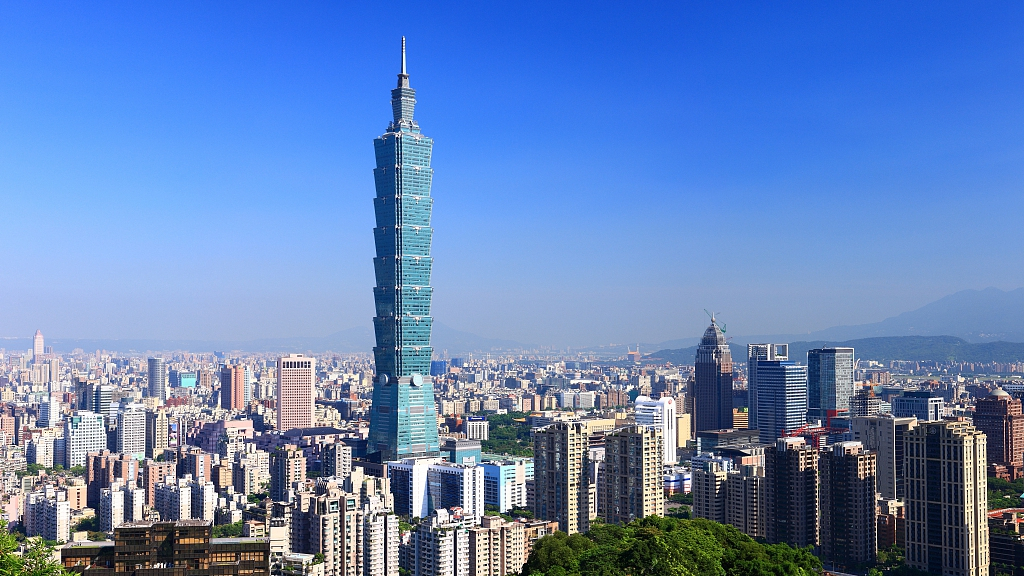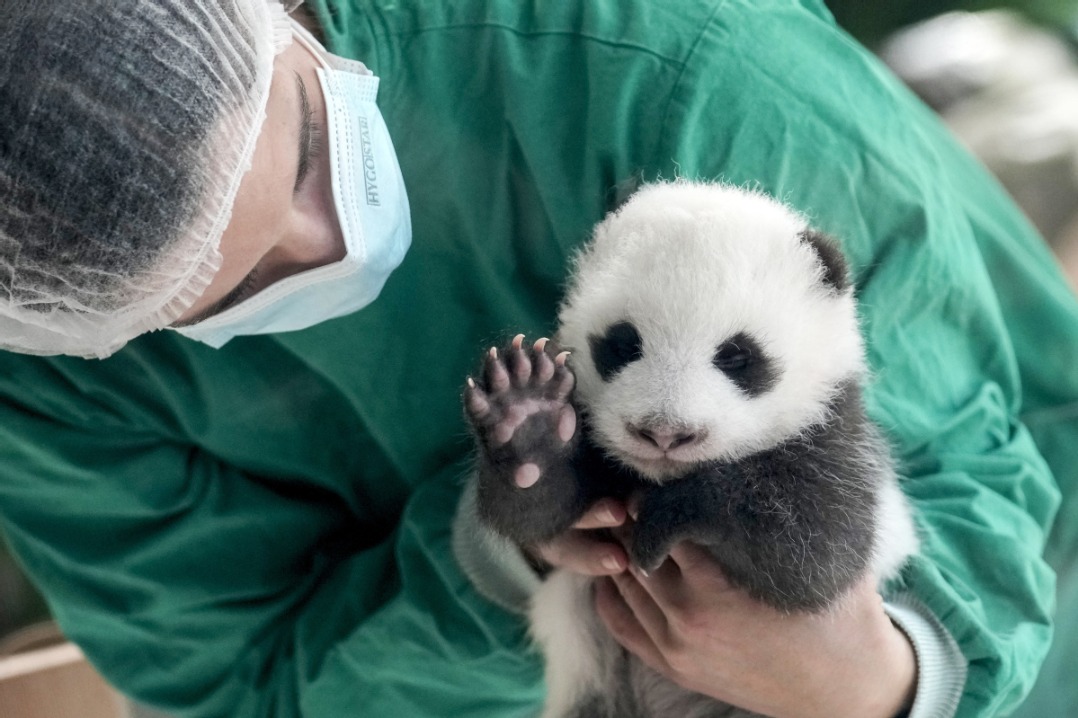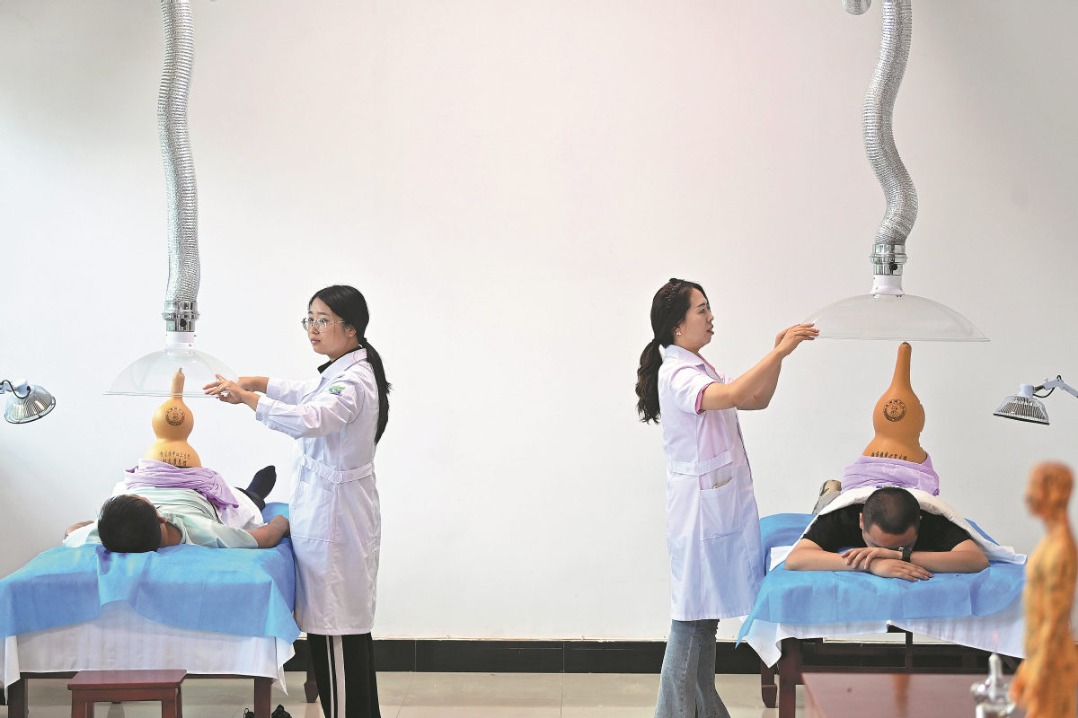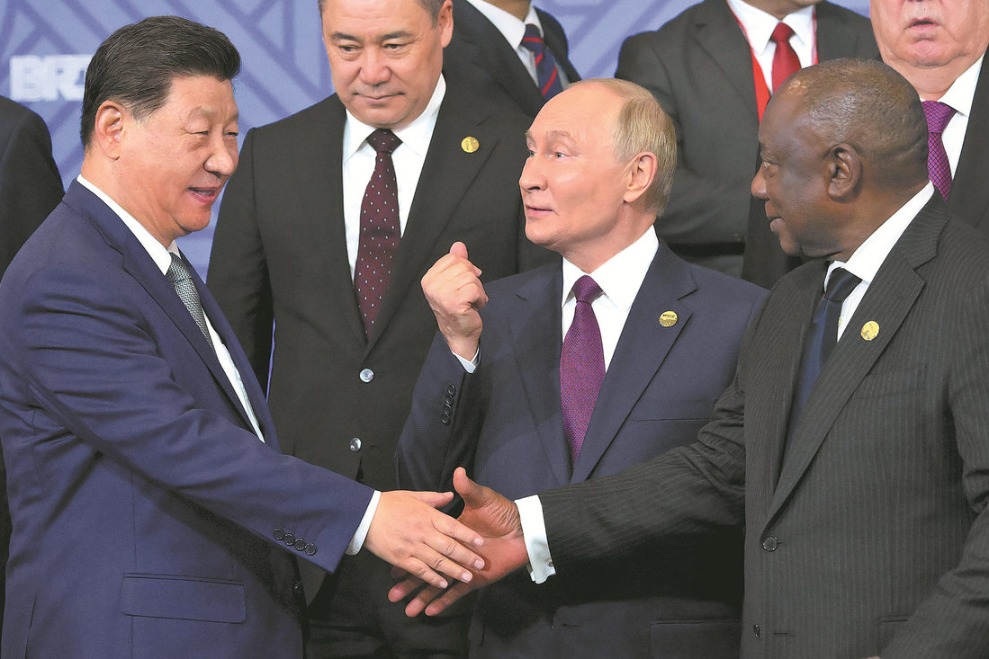Taiwan marks 79th anniversary of recovery from Japanese occupation
By ZHANG YI | CHINA DAILY | Updated: 2024-10-26 07:52

Various sectors of Taiwan society commemorated the 79th anniversary of Taiwan's recovery from Japanese occupation on Friday, urging the island authorities for recognizing the one-China principle and voicing their opposition to pushing the island to the brink of war.
More than 1,000 people in support of reunification of the two sides of the Strait joined a march held in Taipei and submitted a joint statement to the Democratic Progressive Party authorities, appealing for reinstating the day as a statutory holiday to uphold historical justice.
They said in the statement that Taiwan's recovery was a hard-won achievement through the bloodshed of all Chinese people, and the legal status of both sides belong to one China cannot be challenged.
They called for opposition against the DPP's collusion with external forces, which could push the Taiwan Strait to the brink of war, and Taiwan should engage in dialogue with the Chinese mainland at an early stage to ensure stability, according to the statement.
In July 1894, Japan launched a war of aggression against China known as the First Sino-Japanese War. In April 1895, the defeated Qing government was forced to cede Taiwan and the Penghu Islands to Japan.
In December 1943, China, the United States and the United Kingdom issued the Cairo Declaration, stating that it was the purpose of the three allies that all the territories Japan had taken from China, such as Northeast China, Taiwan and the Penghu Islands, should be restored to China.
The Chinese government declared the resumption of sovereignty over Taiwan and held the ceremony to accept Japan's surrender in Taiwan Province of the China war theater of the Allied powers in Taipei on Oct 25, 1945, after the end of World War II.
Zhu Fenglian, spokeswoman for the Taiwan Affairs Office of the State Council, said that it was a victory achieved through the efforts of all Chinese, including Taiwan compatriots, and demonstrates that Taiwan is an indivisible part of China based on historical and legal facts.
Zhu condemned the Taiwan authorities under Lai Ching-te for its separatist stance, who failed to commemorate Taiwan's recovery to the motherland but instead repeatedly promoted and glorified the historical periods of Dutch and Japanese colonial occupation in Taiwan.
Their attempt aims to construct a historical perspective that seeks "Taiwan independence" to "poison the minds of the younger generation", she said.
Chi Chia-lin, chairman of Taiwan's Reunification Alliance Party, said Lai, the island's head, has repeatedly distorted history in his speeches, and promoted the "two-state" fallacy, which has rapidly deteriorated cross-Strait relations.
Wu Jung-yuan, chairman of the Labor Party in Taiwan, said that "the separatists continuously trample upon and undermine the fact that both sides belong to one China, leading to a dangerous situation of escalating tensions between the two sides."
"The people of Taiwan can only bravely stand up to save themselves, strive for peaceful reunification across the Strait, so that the people can live and work in peace, and Taiwan can enjoy long-term stability," he said.























